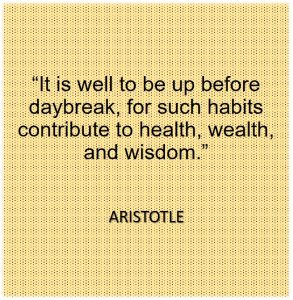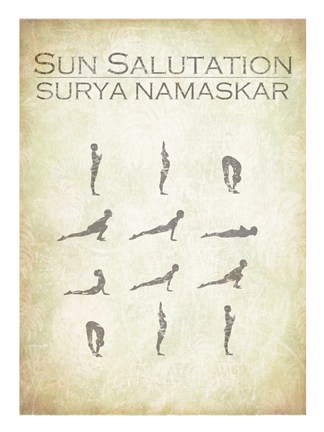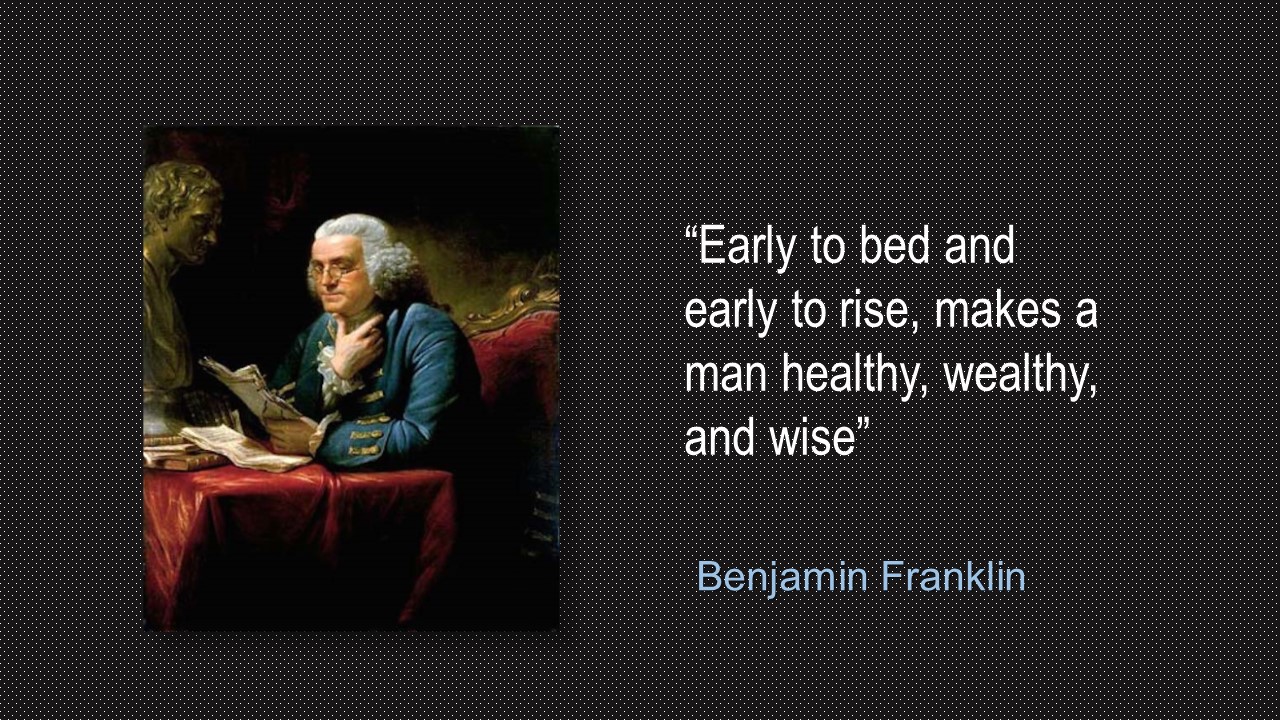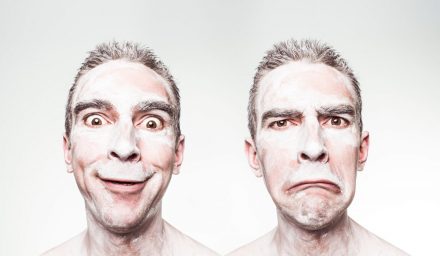
“Early Morning Bengal Village” Watercolor Painting by Samiran Sarkar
The philosopher Aristotle asserted, “It is well to be up before daybreak, for such habits contribute to health, wealth, and wisdom.” Many centuries later, Benjamin Franklin (who believed that, “When one has learnt by experience the value of any good habit, it is his duty to recommend it to others to the best of his ability”) in his memorable meditation on Early Rising: Natural, Social and Religious Duty (free download from archive.org) published in 1855 observed,
Besides the promptings of nature and instinct within us, which we should do well to obey, there are strong reasons to be deduced from the physical constitution of the atmosphere and light, and from the chemical influences which these exercise upon the functions of animal life, in support of the assertion that early rising promotes bodily health. Mankind, in general, are little aware of the powerful agencies in nature, whereby the atmosphere is continuously purified and renewed, and the animal and vegetable worlds are sustained in healthy and vigorous existence. Those agencies are for the most part secret and silent in their operations, escaping the observation unless it be particularly directed to them.
 Today we know this to be true as science has come to a similar recognition. A growing number of studies are proving the health benefits of exposure to early morning sunlight. In one study, researchers discovered that when people are exposed to sunlight or very bright artificial light in the morning, their nocturnal melatonin (a hormone that helps control your sleep and wake cycles) production occurs sooner, and they enter into sleep more easily at night. Melatonin production also shows a seasonal variation relative to the availability of light, with the hormone produced for a longer period in the winter than in the summer. The melatonin rhythm phase advancement caused by exposure to bright morning light has been effective against insomnia, premenstrual syndrome, and Seasonal Affective Disorder (SAD).
Today we know this to be true as science has come to a similar recognition. A growing number of studies are proving the health benefits of exposure to early morning sunlight. In one study, researchers discovered that when people are exposed to sunlight or very bright artificial light in the morning, their nocturnal melatonin (a hormone that helps control your sleep and wake cycles) production occurs sooner, and they enter into sleep more easily at night. Melatonin production also shows a seasonal variation relative to the availability of light, with the hormone produced for a longer period in the winter than in the summer. The melatonin rhythm phase advancement caused by exposure to bright morning light has been effective against insomnia, premenstrual syndrome, and Seasonal Affective Disorder (SAD).
The melatonin precursor, serotonin, is also affected by exposure to daylight. Normally produced during the day, serotonin is only converted to melatonin in darkness. Moderately high serotonin levels result in more positive moods and a calm yet focused mental outlook. Indeed, Seasonal Affective Disorder has been linked with low serotonin levels during the day, as well as with a delay in nighttime melatonin production.
When people are exposed to sunlight or very bright artificial light in the morning, their nocturnal melatonin production occurs sooner, and they enter into sleep more easily at night.
With our modern-day penchant for indoor activity and staying up well past dusk, nocturnal melatonin production is typically far from robust. “The light we get from being outside on a summer day can be a thousand times brighter than we’re ever likely to experience indoors,” says melatonin researcher Russel J. Reiter of the University of Texas Health Science Center. “For this reason, it’s important that people who work indoors get outside periodically, and moreover that we all try to sleep in total darkness. This can have a major impact on melatonin rhythms and can result in improvements in mood, energy, and sleep quality.”
For people in jobs in which sunlight exposure is limited, full-spectrum lighting may be helpful. Sunglasses may further limit the eyes’ access to full sunlight, thereby altering melatonin rhythms. Going shades-free in the daylight, even for just 10–15 minutes, could confer significant health benefits.
Those in the ancient East used to get up in the morning and do “Sun-salutations.” There is no denying that there are definite health benefits with such a ritual. In this regard, we learn a great deal from our ancestors, a sentiment observed by William Osler in Aequanimitas, “The foolishness of yesterday has become the wisdom of tomorrow.”

The light we get from being outside on a summer day can be a thousand times brighter than we’re ever likely to experience indoors.
For this reason, it’s important that people who work indoors get outside periodically, and moreover that we all try to sleep in total darkness. This can have a major impact on melatonin rhythms and can result in improvements in mood, energy, and sleep quality.

Benjamin Franklin (January 17, 1706 – April 17, 1790) defines early rising as before sunrise after six to seven hours of sleep.






I have noticed you don’t monetize unboundintelligence.com,
don’t waste your traffic, you can earn additional cash every month with
new monetization method. This is the best adsense alternative for any type of website (they approve all websites), for more info simply search in gooogle: murgrabia’s tools
The principle isn’t to artificially turn out to be effective, kcfbceaefcba